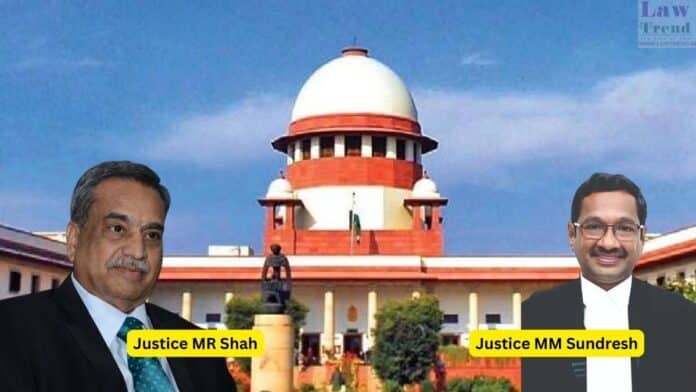The Supreme Court Friday said lawyers and professionals with 10 years of experience will be eligible for appointment as President and member of the state consumer commission and district forums.
The apex court said the Central government and the state governments concerned have to come with an amendment in the Consumer Protection (Qualification for appointment, method of recruitment, procedure of appointment, term of office, resignation and removal of President and Members of State Commission and District Commission) Rules, 2020 to provide for 10 years’ experience to become eligible for appointment as President and member of the state commission and district forums instead of 20 years and 15 years respectively.
A bench of Justices M R Shah and M M Sundresh, in exercise of powers under Article 142 of the Constitution to do complete justice, directed that till suitable amendments are made, a person with bachelor’s degree from a recognised university and having ability, integrity and standing, and special knowledge and professional experience of not less than 10 years in consumer affairs, law, public affairs, administration and economics can qualify for the posts,
Those with similar experience in commerce, industry, finance, management, engineering, technology, public health or medicine, shall also be qualified for appointment of the President and members of the State Commission.
“We also direct under Article 142 of the Constitution of India that for appointment of President and Members of the State Commission and District Commission, the appointment shall be made on the basis of performance in written test consisting of two papers…,” the bench said.
The top court upheld an order of the Nagpur Bench of the Bombay High Court which had set aside certain provisions of the Consumer Protection Rules, 2020 that govern appointment of President and members to State and District Consumer Disputes Redressal Commissions.
The Union Ministry of Consumer Affairs and State of Maharashtra challenged the high court’s judgment before the Supreme Court.
The apex court said the high court was right in striking down the relevant rules.
“As per Article 233 of the Constitution, a lawyer needs to have only 7 years of practice as an advocate in High Court. Under the circumstances to provide 20 years’ experience under Rule 3(2)(b) is rightly held to be unconstitutional, arbitrary and violative of the Article 14 of the Constitution of India. We are in complete agreement with the view taken by the High Court,” it said.
The apex court said it was of the opinion that Rule 6(9) lacks transparency and it confers uncontrolled discretion and excessive power to the Selection Committee.
“Under Rule 6(9), the Selection Committee is empowered with the uncontrolled discretionary power to determine its procedure to recommend candidates to be appointed as President and Members of the State and District Commission. The transparency and selection criteria are absent under Rule 6(9).
“In absence of transparency in the matter of appointments of President and Members and in absence of any criteria on merits the undeserving and unqualified persons may get appointment which may frustrate the object and purpose of the Consumer Protection Act,” it said.
The bench said it cannot be disputed that the commissions are empowered with the powers of court and are quasi judicial authorities. They empowered to discharge judicial duties with the adequate powers of the court including civil and criminal.
“Therefore, the standards expected from the members of the tribunal should be as nearly as possible as applicable to the appointment of judges exercising such powers,” it said.




